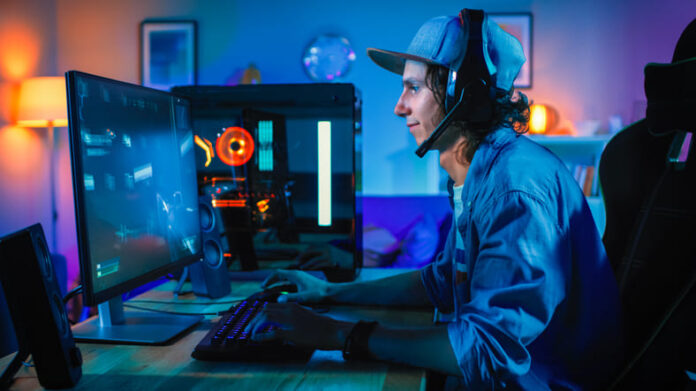Investing in a gaming PC is an exciting yet critical decision that can greatly enhance your gaming experience. To ensure you get the most out of your purchase, here are the essential factors to consider before taking the plunge.
You can find more information about gaming PCs here: https://vibox.co.uk/gaming-pcs
Define Your Gaming Needs
Start by identifying the types of games you plan to play and the performance you expect. Casual games like Minecraft or League of Legends have modest requirements, while graphically intense AAA titles demand more powerful hardware. If you’re considering tasks like streaming or video editing alongside gaming, factor these into your decision. Additionally, think about future-proofing—investing in slightly better components now can save you the hassle of upgrading too soon.
Budget Wisely
Setting a budget is crucial, as gaming PCs range from entry-level setups to premium rigs. Allocate your funds carefully, with the largest portion going to the GPU, the component that most affects gaming performance. Prebuilt PCs are convenient but may come at a premium, while custom-built PCs offer better value and flexibility to choose components that meet your exact needs.
GPU and Display Goals
The GPU is the backbone of a gaming PC, as it handles rendering graphics and delivering smooth visuals. Match your GPU choice with the resolution and refresh rate of the monitor you’ll use. For example, gaming at 1080p requires a mid-range GPU, while 4K gaming demands a high-end model. Modern GPUs like NVIDIA’s RTX 30-series or AMD’s Radeon RX 6000-series come with advanced features like ray tracing and DLSS for enhanced visuals.
CPU Selection
A capable CPU is essential to handle gaming workloads and prevent bottlenecks that can limit GPU performance. Choose a CPU with at least six cores and a high clock speed of 3.5 GHz or more. AMD Ryzen processors excel at multi-threaded tasks, while Intel Core processors often lead in single-threaded performance. Ensure your CPU complements your GPU for smooth and efficient performance.
Adequate RAM
RAM is another vital component that impacts how well your system runs games and handles multitasking. For most gamers, 16GB of DDR4 or DDR5 RAM is sufficient. If you plan to stream or run multiple applications alongside gaming, 32GB may be a better choice. Higher RAM speeds, such as 3200MHz or above, can also improve performance, especially in CPU-intensive games.
Storage
Storage plays a big role in load times and the overall speed of your system. Solid State Drives (SSDs) are faster and more reliable than traditional Hard Disk Drives (HDDs). A combination of both is ideal—use an SSD for your operating system and frequently played games, while reserving an HDD for bulk storage. A 1TB SSD is a good starting point to ensure you have room for modern game files, which can be quite large.
Cooling and Power Supply
Gaming PCs generate heat, especially during prolonged sessions or demanding workloads. Proper cooling, whether through air or liquid systems, is essential to maintain performance and extend the lifespan of your components. Air coolers are cost-effective for most users, while liquid cooling is quieter and more efficient for high-end builds. Equally important is a reliable Power Supply Unit (PSU). Choose a PSU with an 80 PLUS certification and adequate wattage—650W to 850W is sufficient for most gaming systems.
Monitor Compatibility
Your monitor should complement your PC’s capabilities to deliver the best gaming experience. Ensure your system can handle your monitor’s resolution (e.g., 1080p, 1440p, or 4K) and refresh rate (60Hz, 144Hz, or 240Hz). If your GPU and monitor support adaptive sync technologies like G-Sync or Free Sync, you’ll enjoy smoother gameplay without screen tearing.
Upgradability
Technology evolves quickly, so ensure your gaming PC is future-proof and easy to upgrade. Opt for a motherboard that supports modern standards like PCIe 4.0 or 5.0 and DDR5 RAM. Having sufficient expansion slots and room in your case for additional components like GPUs or storage drives can save you from replacing the entire system down the line.
Peripherals and Aesthetics
While the PC itself is the centrepiece, peripherals play a significant role in your gaming experience. Invest in a mechanical keyboard, a responsive gaming mouse, and a high-quality headset for immersive audio. If aesthetics matter, look for cases with RGB lighting and sleek designs, but prioritize build quality and functionality over looks.
Conclusion
Buying a PC gaming involves balancing your budget, performance needs, and long-term plans. Focus on the key components like the GPU, CPU, RAM, and storage to ensure a smooth gaming experience. By keeping these factors in mind, you’ll build or purchase a PC that delivers outstanding performance and meets your gaming aspirations for years to come.
Disclaimer: This article contains sponsored marketing content. It is intended for promotional purposes and should not be considered as an endorsement or recommendation by our website. Readers are encouraged to conduct their own research and exercise their own judgment before making any decisions based on the information provided in this article.


































